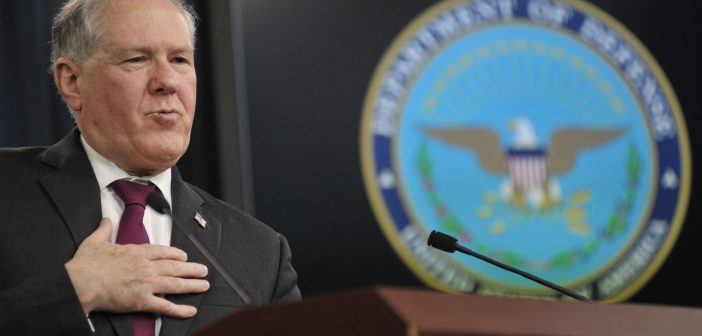As Congress considers more changes to how the Pentagon buys goods and services, lawmakers should read DoD’s latest annual report on the performance of the defense acquisition system.
The report illustrates consistent efforts by Pentagon leaders over the past eight years are paying off: cost growth on major programs is now at a 30-year low.
That’s a remarkable achievement for senior leaders like Defense Secretary Ash Carter and Pentagon acquisition chief Frank Kendall who made cost control a priority by curbing requirements, mitigating risk, increasing competition, improving acquisition workforce professionalism and making decisions based on data rather than emotion.
The combination is saving billions of dollars a year.
You’d think that such progress would be rewarded by Congress. Instead, the future of Kendall’s office – created by the landmark 1986 Goldwater-Nichols legislation to bring oversight over out-of-control military programs – is, again, in jeopardy.
For years, Sen. John McCain, R-Ariz., the chairman of the Senate Armed Services Committee, has wanted to strip Kendall of his authority.
Legislation adopted last year shifted greater acquisition authority from Kendall’s office back to the military services, and this year, some want the position eliminated while others want the acquisition and logistics roles to be split.
Moves to diminish the authority of Kendall’s office will only backfire in the future.
History has repeatedly proven that programs get into trouble despite involvement of the Pentagon’s acquisition chief, not because of it and that even poorly conceived programs survive terrific criticism if the military service sponsoring it will defend and fund it.
The argument that programs are troubled because the services don’t have enough control over them is wholly specious.
Despite withering internal and external pressure, the Navy’s has consistently fought to protect the Littoral Combat Ship program, keeping it alive. When former Defense Secretary Chuck Hagel asked whether the program should be capped, the Navy circled the wagons and kept LCS alive, albeit with modest changes.
It’s impossible to argue that LCS is problem plagued because of Kendall’s involvement or that it would have had fewer problems had Kendall exercised less oversight of the program.
For the most part Kendall’s role is oversight. It’s the military services that craft requirements, create programs as well as manage and bankroll them. He becomes involved when important programs become problem plagued and returns them to service oversight when they’re back on track.
Second, given the most expensive part of any program through life support, connecting acquisition and logistics is vital. The two were separate until they were united by Goldwater-Nichols, but it’s only over the past few years that military leaders have concluded that reducing through life costs is an imperative. Historically, the US military has put raw performance ahead of economy when it comes to operating weapons. Now, there is growing recognition that more efficient systems save money than can be applied elsewhere, whether for more weapons or improved readiness.
The bottom line is: When you’re spending several hundred billion dollars a year on developing new technologies and complex systems and then supporting them for decades, you need so have someone in charge.
It’s always possible to improve the U.S. acquisition system. But after having worked so hard to deliver real progress, Congress has an obligation to the American people to do nothing that sets back that progress and ensure that decisions are based on fact.




